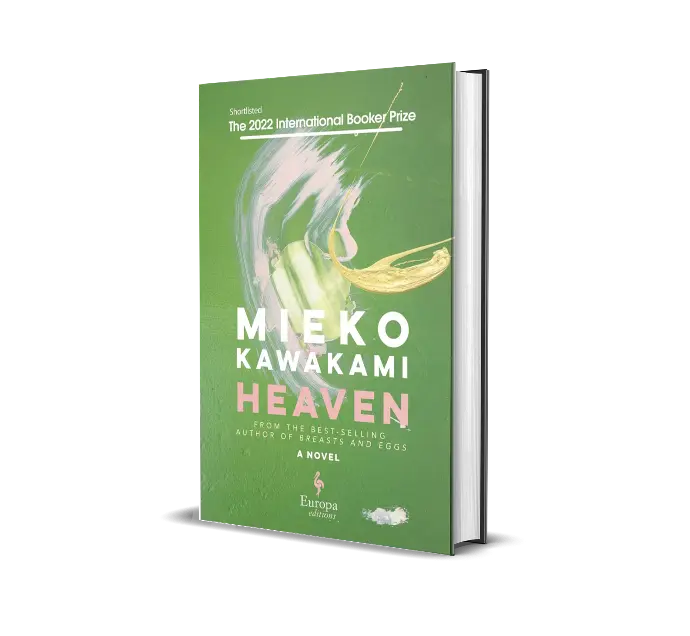Impeccably translated by Sam Bett and David Boyd, the book is full of masterly set pieces of violence, scenes of senseless bullying so lucid you can almost feel the pain yourself... The dissonances of the novel align into perfect vision for the breathtaking ending, which is an argument in favor of meaning, of beauty, of life.
Heaven: A Powerful Exploration of Violence, Solidarity, and the Human Spirit
Mieko Kawakami's "Heaven" is a poignant and thought-provoking novel that delves into the profound impact of violence and the redemptive power of solidarity in contemporary society. Originally published in Japan in 2009 and now translated into English by Sam Bett and David Boyd, this novel offers readers a raw and unflinching glimpse into the lives of two young protagonists who find solace in each other's company amidst relentless bullying and torment.
At the heart of "Heaven" is the story of a 14-year-old boy who becomes the target of merciless bullying due to his lazy eye. Instead of resisting, he chooses to suffer in silence, finding fleeting moments of relief in his friendship with a fellow classmate who shares his experiences of abuse. Through their bond, Kawakami explores complex themes of resilience, trauma, and the search for meaning in the face of adversity.
One of the novel's greatest strengths lies in its ability to tackle difficult subject matter with sensitivity and nuance. Kawakami does not shy away from portraying the harsh realities of bullying, nor does she romanticize the pain experienced by her characters. Instead, she presents their struggles with honesty and compassion, allowing readers to empathize with their plight and contemplate the deeper implications of their suffering.
Throughout the novel, Kawakami weaves together threads of philosophical and religious discourse, inviting readers to ponder the nature of violence and its effects on the human psyche. Through the lens of her characters' experiences, she raises questions about the morality of suffering, the role of empathy in human relationships, and the possibility of finding redemption in the face of despair.
What sets "Heaven" apart is Kawakami's masterful storytelling and her ability to create characters that feel authentic and deeply human. The relationship between the two protagonists is rendered with such emotional depth and complexity that it resonates long after the final page is turned. As they navigate the treacherous waters of adolescence, readers are drawn into their world, sharing in their triumphs and tribulations, their hopes and fears.
In addition to its compelling narrative, "Heaven" also serves as a testament to Kawakami's literary talent and her ability to push the boundaries of contemporary Japanese literature. With its stark prose, vivid imagery, and profound insights, the novel stands as a powerful exploration of the human spirit and the enduring quest for meaning and connection in a world marked by violence and injustice.
In conclusion, "Heaven" is a remarkable achievement that deserves to be celebrated for its honesty, its insight, and its unwavering commitment to telling stories that matter. As readers journey through the pages of this extraordinary novel, they will be moved, challenged, and ultimately transformed by the experience.

Mieko Kawakami
Embark on a captivating journey through the literary landscape of Mieko Kawakami, a renowned Japanese author whose words resonate with profound depth and emotion. With a unique voice and a penchant for exploring...

Heaven
One day toward the end of April, between classes, I unzipped my pencil case and found a folded triangle of paper between the pencils. I unfolded it to see what inside "We should be friends"...